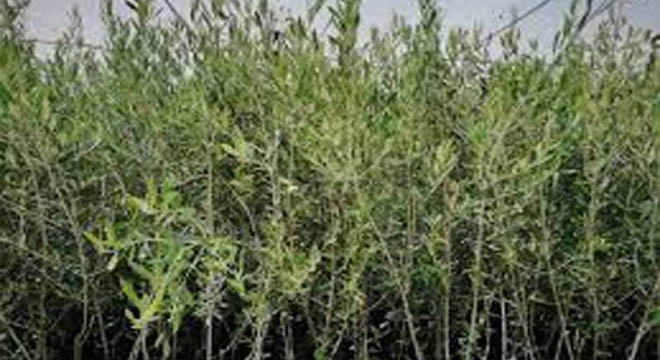ISLAMABAD-To promote olive farming on large scale for reducing the reliance on imported edible oil as well as to encourage high-value agriculture, about 2.3 million olive plants to be cultivated during the current season. These plants to be cultivated under current autumn olive cultivation drive across the potential areas in the country said Project Director of Olive Cultivation on Commercial Scale in Pakistan Dr Muhammad Tariq. While talking to APP here on Monday, he said that olive cultivation drive has been carried out twice in a year, first in the spring season and other in autumn to promote olive cultivation and bring barren and sami- agriculture land under high-value crops production. Average 500,000 to 600,000 olive plants per annum is being cultivated, he said adding that survey teams have also started their feasibility studies to identify the area for coming cultivation drive.
He further informed that besides promoting olive, as many as 10 plants producing nurseries have also been established in collaboration with public and private sectors to fulfil the local needs. From these local nurseries about 1 million plants would be obtained this season, he said adding that these plants would be 100 per cent certified by the Federal Seeds Registration and Certification Authority.
Dr Tariq further informed that olive cultivation in the country has been gaining momentum as local output during the current season projected to cross 11,000 tonnes, showing a significant development towards reducing reliance on the imported edible oil as well as to exploit the export potential of this particular agriculture produce.
“The country is expecting to extract about 13,000 tonnes of extra virgin olive worth millions of dollars that would help to boost the farm income with less investment and use of inputs,” he added. Sofar olive has been successfully cultivated over 27,000 hectares of land across the country and it was set to extend its cultivation to over 70,000 hectares to turn the marginal lands into productive for enhancing the income of small scale growers, he added. This initiative would help to bring the sami-barren and marginal lands under cultivation of the high-value crop in far off areas of the country, he said adding that besides it would help to eliminate poverty by bringing the most vulnerable communities in safety nets through agriculture interventions.
Under the olive cultivation project, he said that farmers were provided about 550,000 plants during last year and this year over 675,000 more plants would be distributed among them to promote its cultivation at large scale. Dr Tariq said that government intended to provide more 2.2 million plants and bring about 50,000 hectares under olive cultivation by end of 2022-23, adding that if continued with the same spirit, the country would be included in the list of potential exports of extra virgin olive oil. Besides cultivation of olive, he said the government was also focusing to establish processing units for oil extraction and so far 9 extraction units have been installed in different places to facilitate the growers. Meanwhile, the provincial governments of Punjab and Balochistan have also installed 3 units respectively in different districts, whereas the private sector was also active and had installed its mobile plants in Fasilabad and Chakwal.
Dr Tariq said that government was paying special attention to promote olive cultivation in Balochistan and provided about 700,000 plants to growers and it was cultivated in 22 districts, adding that out of the total cultivated plants about 30 per cent have started to produce fruits. To facilitate the local growers of Balochistan, 5 oil processing units have been installed there, besides the farmers were also provided training of value addition of the product and processing. This year, he said that government had organized two-day International Olive Conference in Khuzdar, which was virtually participated by experts from Greece, Italy and Spain, he said adding that local scientists and experts also took part in the event.
Follow the PNI Facebook page for the latest news and updates.









